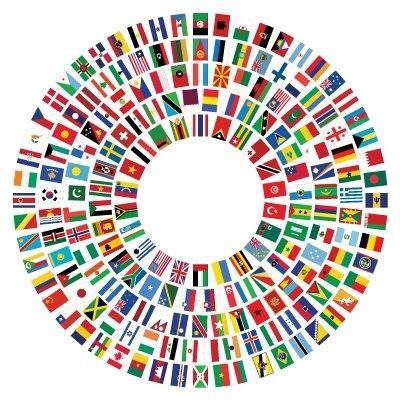
WB approves $500m to B'desh for road connectivity with India
Dhaka, June 24 (IANS) The World Bank has approved $500 million to help Bangladesh improve road connectivity along the Jashore-Jhenaidah corridor covering four western districts of Bangladesh to connect with the capital Dhaka as well as with India and Bhutan.
World Bank Country Director for Bangladesh and Bhutan Mercy Tembon said, "This project will unlock the region's potential by stimulating the economy of districts, linking farms to markets, connecting Dhaka with the western region as well as with neighbouring countries, thus enhancing trade, transit and logistics along the corridor."
It will support the Bangladesh government's plan of developing a 260 km economic corridor in the western part and benefit over 20 million people.
The Western Economic Corridor and Regional Enhancement (WeCARE) Phase I project is the first of a multi-phased $1.4 billion World Bank programme to upgrade the existing 110 km two-lane highway, Bhomra-Satkhira-Navaron and Jashore-Jhenaidah, to a safer and climate-resilient four-lane highway in western Bangladesh, said a World Bank press release on Wednesday.
The World Bank is among the first development partners to support Bangladesh following its independence. Bangladesh currently has one of the largest IDA programmes totalling over $13 billion.
Since independence, the World Bank has committed more than $31 billion in grants, interest-free, and concessional credits to the country.
The first phase of the programme will upgrade 48 km of the N7 highway between Jashore and Jhenaidah and improve about 600 km connecting rural roads and 32 rural markets/growth centres to stimulate the local economy.
The COVID-19 pandemic has hit the poorest hard with the loss of jobs and income. To help them recover from the shock, the project will support immediate social protection and livelihoods to the vulnerable rural people by engaging them in labour-intensive civil works.
In Khulna Division, where about 57 per cent of the population's income is generated from agricultural production, the project will build new markets and improve storage facilities along the corridor that will help farmers reduce waste, increase sales and earn more, the world Bank officials mentioned as an example.
The credit from the World Bank's International Development Association (IDA), which provides concessional financing, has a 34-year term, including a four-year grace period. With this financing, the World Bank's total commitment in the current financial year (FY 19-20) stands at $2.27 billion.
The western region of Bangladesh is endowed with many agricultural and natural produce and holds great potential of becoming a gateway for regional and international trade, WB Country Director Mercy said.
To help the country realize the 'Digital Bangladesh' vision, the project will install fibre optic cables along the highway to provide reliable and affordable Internet access, which will be critical for emergency responses and business continuity in crises similar to the COVID-19 (coronavirus) pandemic.
Even in the post-COVID period, the project will create jobs for the local communities through civil works for the national highway and connecting rural roads and markets, said Rajesh Rohatgi, World Bank Senior Transport Specialist and Project Task Team Leader.
The World Bank official said it will also support the country's two key transport agencies -- Roads and Highway Division and Local Government Engineering Department -- to enhance emergency preparedness for any future pandemic or crisis.
The project will also enhance the agriculture supply chain efficiency in the western region by ensuring that produce are transported to markets in less time and lower cost.
Bangladesh currently has the largest IDA ongoing programme totalling over $13.5 billion. The World Bank was among the first development partners to support Bangladesh, and has committed more than $31 billion in grants, interest-free and concessional credits to the country, since its independence.
The World Bank will be deploying up to $160 billion in financial support over 15 months to help more than 100 countries protect the poor and vulnerable, support businesses, and bolster economic recovery. This includes $50 billion of new IDA resources through grants and highly concessional loans.
Meanwhile, WB has approved $1.05 billion for three projects. To reduce vulnerabilities from the pandemic and prepare for the Fourth Industrial Revolution, the project will help digitalize small and medium enterprises and strategic industries.
The project will help Bangladesh to create quality jobs and accelerate economic recovery from the COVID-19 pandemic as well as build resilience to future crises.
It will create 150,000 jobs, of which about 40 percent of jobs in software parks and 20 percent of jobs in economic zones will be for women, said a press release on June 19.
"This is an extraordinary response to an unprecedented crisis. The COVID-19 pandemic has deeply jeopardized many of Bangladesh's remarkable achievements in poverty reduction and shared prosperity, including livelihoods of its population," said Mercy Tembon.
--IANS
sumi/bg

Legal Disclaimer:
MENAFN provides the
information “as is” without warranty of any kind. We do not accept
any responsibility or liability for the accuracy, content, images,
videos, licenses, completeness, legality, or reliability of the information
contained in this article. If you have any complaints or copyright
issues related to this article, kindly contact the provider above.


















Comments
No comment